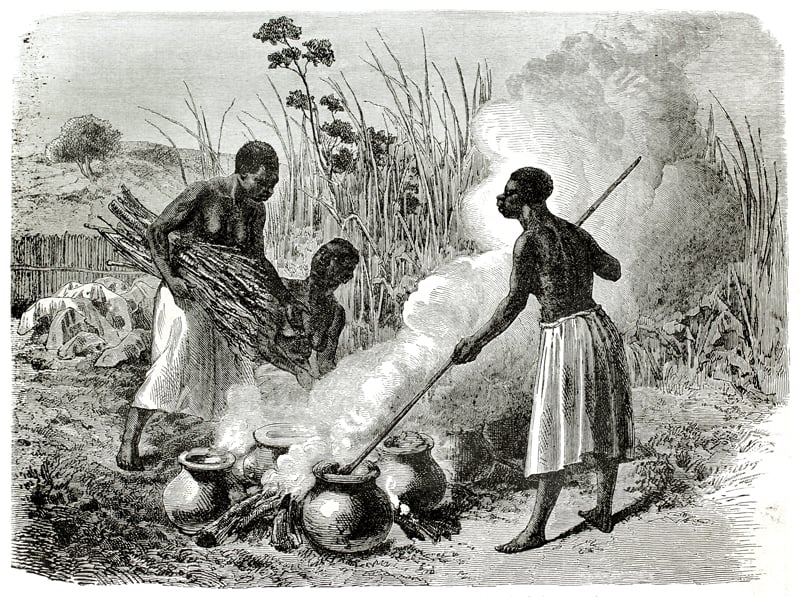BEER HAS been produced for some 7,000 years.
The history of beer began in Mesopotamia, in what is now Iran, where evidence of fermented cereals was found in ancient pottery. Anthropologists can put a date on it because of a 6,000-year-old Sumerian tablet that depicts people consuming a drink through reed straws from a communal bowl. (What a TV beer commercial that would make!)
The first beer was made by fermenting bread; and there is no doubt that the women of the tribe were the brewers.
The first recorded recipe on how to make beer was included in a 3,900-year-old Sumerian poem honouring the patron saint of brewing, the goddess Ninkasi.
Fast forward to 2015 when a UK-based environmentalist and food waste campaigner named Tristram Stuart established a brewery whose entire profits would be poured into the charity called Feedback (which he founded in 2009). Its mission statement: to put an end to food waste. His idea, inspired by the Brussels Beer Project, was to use surplus bread to make beer.
He called his brewery Toast.
His bread-based operation has, of course, given rise to some groan-worthy puns: the label of the company’s lager describes its content as “Much kneaded.” And in his TED Talk, Rob Wilson, the brewery’s “Chief Toaster” who has been involved with the enterprise since its inception in 2016, exhorts his listeners to “get wasted on waste.”
Billions of tons of food are left to rot every year, Wilson says. “Forty per cent of the bread we bake never gets eaten.”
Toast beer’s back label explains what the company is all about: “Our award-winning beer is brewed using unsold loaves from bakeries and unused crusts from sandwich makers. With a slice of surplus fresh bread in each bottle and all profits poured into the charity Feedback to end food waste, Toast is the best thing since … well, you know.”
Then, in his TED talk, Wilson gets serious: “We believe if you’re going to change the world you have to throw a better party than the people and the corporations who are destroying it.”
This message is distilled in a less provocative phrase on the neck label on the bottles: “Brewing a better planet.”
Stuart states on Toast’s website that the United Kingdom wastes 46 million slices of bread every day.
Why you might ask does so much bread end up in landfill sites? In his book Waste, Stuart writes: “Bakeries overproduce to ensure they’ll have enough stock for their customers. It’s a little unpredictable so they inevitably have loaves left at the end of the day. Supermarkets want shelves to always be full and dispose of edible bread that is past the sell-by or best-before date — both indicators of quality, not safety. Sandwich manufacturers discard the heel end of loaves because we don’t eat crusts. So, unfortunately, it’s not as simple as baking less bread — we’ve got to change consumer expectations of having abundant quantities of day-fresh bread. We also waste vast quantities in our homes — 24 million slices of bread every day — because we buy too much.
“The problem, of course, is not only with bread. Western countries throw out nearly half of food before it even reaches our refrigerators — not because it’s inedible — but because it doesn’t look appealing and the farmers cannot sell it to the wholesalers and supermarkets.”
But back to beer. Cereals like barley and wheat contain certain sugars that can undergo spontaneous fermentation when they come in contact with wild yeasts in the air.
Stuart says, “We’re re-inventing a historic tradition. We combine fresh surplus fresh bread from sandwich makers and bakeries with malted barley, hops, yeast and water. Bread is packed with carbohydrates, which are broken down to sugar by amylase in the barley. The hops are added for aroma and bitterness, and they also help to preserve the beer. Finally, yeast converts the sugars to alcohol.
“The resurgence in home-brewing, reflecting the huge growth in the craft beer market, means we can all get involved. We waste huge amounts of bread in our homes and not everyone wants to make bread and butter pudding. We’ve published a bread beer recipe online for home brewers.”
Toast brews four different styles of beer in the UK: Craft Lager (5% alcohol), Pale Ale (5%), Session IPA (4.5%), and American Pale Ale (5%). To date the company has “upcycled” 743,423 slices of bread to brew 12,122 litres of beer. In NYC, Toast has been brewing since July 4, 2017, and recently increased the US range to three beers, and there are also Toast brews in Cape Town, Rio and Reykjavik. The business has plans to brew Toast wherever beer and bread are popular to end food waste one pint at a time.
The company is also collaborating with three other breweries around Britain, including Franklins Brewing Company in Sussex, which uses left-over bagels in its Optimist beers. The company motto: “The Optimist sees the bagel and the pessimist sees the hole.”
So now you know what you can do with the end of that loaf that’s going stale in your fridge: instead of baking croutons, you can brew yourself a cold one. You can find the home brew recipe at www.toastale.com/homebrew-recipe/.
The following translation of the Hymn to Ninkasi is by Miguel Civil: Hymn to Ninkasi
Borne of the flowing water,
Tenderly cared for by the Ninhursag,
Borne of the flowing water,
Tenderly cared for by the Ninhursag,
Having founded your town by the sacred lake,
She finished its great walls for you,
Ninkasi, having founded your town by the sacred lake,
She finished its walls for you,
Your father is Enki, Lord Nidimmud,
Your mother is Ninti, the queen of the sacred lake.
Ninkasi, your father is Enki, Lord Nidimmud,
Your mother is Ninti, the queen of the sacred lake.
You are the one who handles the dough [and] with a big shovel,
Mixing in a pit, the bappir with sweet aromatics,
Ninkasi, you are the one who handles the dough [and] with a big shovel,
Mixing in a pit, the bappir with [date] — honey,
You are the one who bakes the bappir in the big oven,
Puts in order the piles of hulled grains,
Ninkasi, you are the one who bakes the bappir in the big oven,
Puts in order the piles of hulled grains,
You are the one who waters the malt set on the ground,
The noble dogs keep away even the potentates,
Ninkasi, you are the one who waters the malt set on the ground,
The noble dogs keep away even the potentates,
You are the one who soaks the malt in a jar,
The waves rise, the waves fall.
Ninkasi, you are the one who soaks the malt in a jar,
The waves rise, the waves fall.
You are the one who spreads the cooked mash on large reed mats,
Coolness overcomes,
Ninkasi, you are the one who spreads the cooked mash on large reed mats,
Coolness overcomes,
You are the one who holds with both hands the great sweet wort,
Brewing [it] with honey [and] wine
(You the sweet wort to the vessel)
Ninkasi, (You the sweet wort to the vessel)
The filtering vat, which makes a pleasant sound,
You place appropriately on a large collector vat.
Ninkasi, the filtering vat, which makes a pleasant sound,
You place appropriately on a large collector vat.
When you pour out the filtered beer of the collector vat,
It is [like] the onrush of Tigris and Euphrates.
Ninkasi, you are the one who pours out the filtered beer of the collector vat,
It is [like] the onrush of Tigris and Euphrates.
Tony Aspler is the author of 17 books on wine, including his latest, Canadian Wineries.





